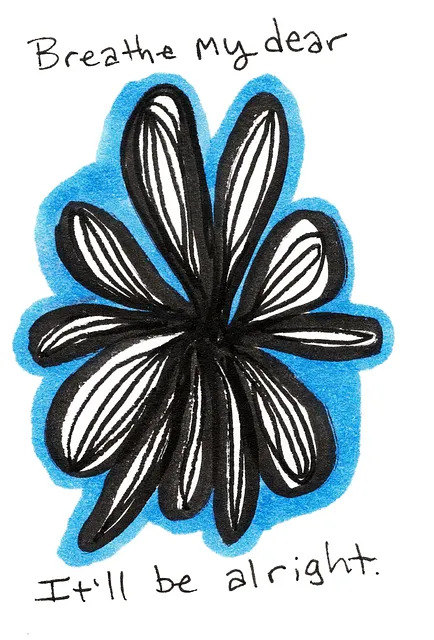Lone Tree Kaiser Permanente psychiatry reviews highlight cultural sensitivity as a cornerstone of effective mental healthcare. They recognize that culture significantly impacts mental health experiences, from supportive systems to barriers to treatment. By valuing and understanding diverse backgrounds, beliefs, and values, healthcare providers can enhance communication, tailor treatments, and build trust with patients from various communities. Lone Tree Kaiser Permanente's innovative practices, including culturally relevant therapy, bilingual staff, and holistic approaches, have led to improved outcomes and increased accessibility for underserved populations, as evident in their case studies.
In today’s diverse society, cultural sensitivity is paramount in mental healthcare. This article explores the intricate interplay between culture and mental health, delving into the unique challenges faced by diverse communities in accessing psychiatric care. We present best practices for culturally competent psychiatry, drawing from the innovative approach of Lone Tree Kaiser Permanente’s psychiatry reviews. By understanding these dynamics, healthcare professionals can provide more inclusive and effective treatment, as demonstrated by Lone Tree’s successful model.
- Understanding Cultural Sensitivity in Mental Healthcare
- The Role of Culture in Mental Health Experiences
- Challenges Faced by Diverse Communities in Accessing Psychiatric Care
- Best Practices for Culturally Competent Psychiatry Reviews
- Case Studies: Lone Tree Kaiser Permanente's Approach to Cultural Sensitivity
Understanding Cultural Sensitivity in Mental Healthcare

Cultural sensitivity in mental healthcare is a critical aspect that cannot be overlooked, especially considering the diverse populations seeking treatment today. It involves recognizing and appreciating the cultural differences that shape individuals’ experiences with mental health issues and their interactions with healthcare providers. At Lone Tree Kaiser Permanente, psychiatry reviews highlight the importance of this sensitivity, as it can significantly impact patient outcomes.
Understanding cultural sensitivity means equipping healthcare providers with the knowledge and skills to navigate diverse backgrounds, beliefs, and values effectively. This includes recognizing how cultural factors influence symptoms, communication styles, and treatment preferences. For instance, a patient’s family dynamics or community norms might play a role in their mood management or therapy choices. Therefore, training in healthcare provider cultural competency is essential, covering topics like communication strategies tailored to different cultures, ensuring inclusive environments, and promoting trust between providers and diverse patient populations.
The Role of Culture in Mental Health Experiences

Culture plays a pivotal role in shaping mental health experiences, significantly influencing how individuals seek and perceive psychiatric care. Lone Tree Kaiser Permanente psychiatry reviews highlight this diverse landscape, where cultural contexts can range from communal support systems to barriers that hinder access to treatment. Understanding these cultural nuances is essential for providing culturally sensitive care. Every patient’s background, including their ethnic identity, religious beliefs, and socioeconomic status, forms a unique lens through which they interpret mental health issues and engage with healthcare services.
The Mental Wellness Podcast Series Production and Public Awareness Campaigns Development can serve as powerful tools to bridge these cultural gaps. By incorporating diverse voices in mental health discussions, these initiatives foster public awareness and understanding of the importance of culturally responsive care. Such efforts not only enhance mental wellness but also encourage individuals from various cultural backgrounds to seek help without fear of judgment or misunderstanding, ensuring that quality psychiatric services are accessible and effective for all.
Challenges Faced by Diverse Communities in Accessing Psychiatric Care

Many diverse communities face significant challenges when it comes to accessing psychiatric care, often due to a complex interplay of socio-economic factors and cultural barriers. These obstacles can include limited availability of culturally sensitive mental healthcare services, language and communication differences, and distrust within communities stemming from historical experiences of discrimination. For instance, reviews of Lone Tree Kaiser Permanente psychiatry services highlight these issues, revealing disparities in access for minority groups seeking psychiatric support.
Cultural sensitivity in mental healthcare practice is crucial to addressing these challenges. Providing care that respects and incorporates cultural contexts, beliefs, and values can foster trust and engagement among diverse communities. Crisis intervention guidance tailored to specific cultural needs, alongside the development of mental wellness coaching programs that are sensitive to ethnic, racial, and linguistic diversity, can significantly enhance accessibility and outcomes for underserved populations.
Best Practices for Culturally Competent Psychiatry Reviews

In the realm of mental healthcare, cultural sensitivity is paramount for providing effective treatments tailored to diverse patient needs. At Lone Tree Kaiser Permanente, psychiatry reviews prioritize compassion cultivation practices as a cornerstone of culturally competent care. This involves actively listening to patients’ unique backgrounds, values, and experiences, fostering an environment where they feel understood and respected. By integrating mental health awareness into routine assessments, healthcare providers can identify cultural factors influencing mental well-being and adjust treatment plans accordingly.
The emotional well-being promotion techniques employed at Lone Tree Kaiser Permanente go beyond medication management. They include incorporating culturally relevant therapeutic approaches, ensuring bilingual and bicultural staff availability, and offering community resource referrals. These strategies not only enhance the quality of care but also bridge cultural gaps, encouraging open communication and fostering trust between patients and their healthcare providers. Such holistic practices ultimately contribute to more positive treatment outcomes and improved patient satisfaction.
Case Studies: Lone Tree Kaiser Permanente's Approach to Cultural Sensitivity

Lone Tree Kaiser Permanente stands as a beacon of cultural sensitivity within the mental healthcare sector, exemplified through its innovative approaches and dedicated efforts to meet the diverse needs of its patient population. The organization’s commitment is evident in numerous case studies that highlight successful interventions tailored to specific cultural contexts. For instance, their psychiatry reviews frequently praise the integration of traditional healing practices alongside evidence-based therapies, demonstrating a nuanced understanding of patients’ cultural identities.
This inclusive practice extends beyond individual treatment plans, as Lone Tree Kaiser Permanente actively fosters community engagement through public awareness campaigns and the development of self-care practices specifically designed to promote mental wellness. Their Mental Wellness Podcast Series production further showcases their dedication, providing accessible educational content that caters to a wide range of audiences, thereby fostering a more culturally sensitive mental healthcare ecosystem.
Cultural sensitivity is a cornerstone of effective mental healthcare, and as evidenced by Lone Tree Kaiser Permanente psychiatry reviews, implementing best practices can significantly improve outcomes for diverse communities. By recognizing and respecting cultural differences in mental health experiences, providers can create more inclusive environments that foster trust and encourage access to care. This approach not only enhances patient satisfaction but also ensures that everyone receives personalized support tailored to their unique needs and backgrounds. Lone Tree Kaiser Permanente’s successful integration of cultural sensitivity into their practices serves as a model for other healthcare institutions, demonstrating the potential to revolutionize mental healthcare accessibility and outcomes across diverse communities.






